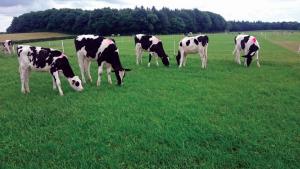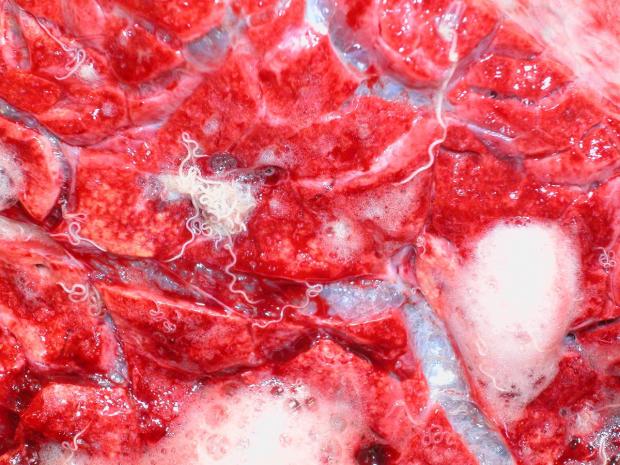Parasitic pneumonia, also known as hoose or husk, is an economically important disease in cattle caused by the lungworm Dictyocaulus viviparus. Lungworm can result in severe financial losses due to loss of performance and fatalities in growing cattle and drop in milk yield and fatalities in lactating cows.

Outbreaks of parasitic pneumonia are usually observed from July to October with occasional outbreaks occurring either earlier in the summer or after October. AFBI would like to alert cattle farmers that we are now in the high risk period for parasitic pneumonia and fatal cases of hoose have already been diagnosed in cattle submitted for post-mortem examination at AFBI laboratories during the current grazing season.
Whilst warm and moist conditions are required for a build-up of lungworm contamination on pasture, cases are occurring despite this summer’s dry conditions and lungworm should be considered as a possible reason for cattle coughing. With recent rain in a number of areas, lungworm burdens on pasture are expected to increase further.

The persistence of this immunity is however dependent on further exposure, otherwise immunity tends to wane over time. Current long-acting anthelmintics, which are used to prevent or treat parasitic gastroenteritis are highly effective but can have the effect of reducing the exposure of young animals to low levels of lungworm infection, which is required to ensure the development of protective immunity. Cases of parasitic pneumonia are now commonly diagnosed by AFBI in older calves and in adult cattle in which immunity to lungworm has waned due to lack of exposure in the intervening period or in animals which were not exposed to lungworm in previous seasons.
Clinical signs of lungworm infection include respiratory signs, panting and harsh persistent cough. Growth rates may be affected. Severe infections result in difficulty in breathing and death. Faecal testing for lungworm larvae is also a useful diagnostic aid but negative results are possible, particularly in early infections.
Effective treatment options are available involving the administration of anthelmintic products. Veterinary advice and treatment should be sought for affected animals.
Notes to editors:
AFBI carries out high quality technology research and development, statutory, analytical, and diagnostic testing functions for DAERA and other Government departments, public bodies and commercial companies.
AFBI's Vision “Advancing the Local and Global Agri-Food Sectors Through Scientific Excellence”.
All media enquiries to AFBI Press Office
Latest news
- AFBI issues Nematodirus warning – Spring 2025 11 April 2025
- Managing Nature Based Risks to the UK Economy and Opportunities for Green Finance 08 April 2025
- AFBI Hillsborough host AERA committee 27 March 2025
- The Omics Days Conference 27 March 2025
